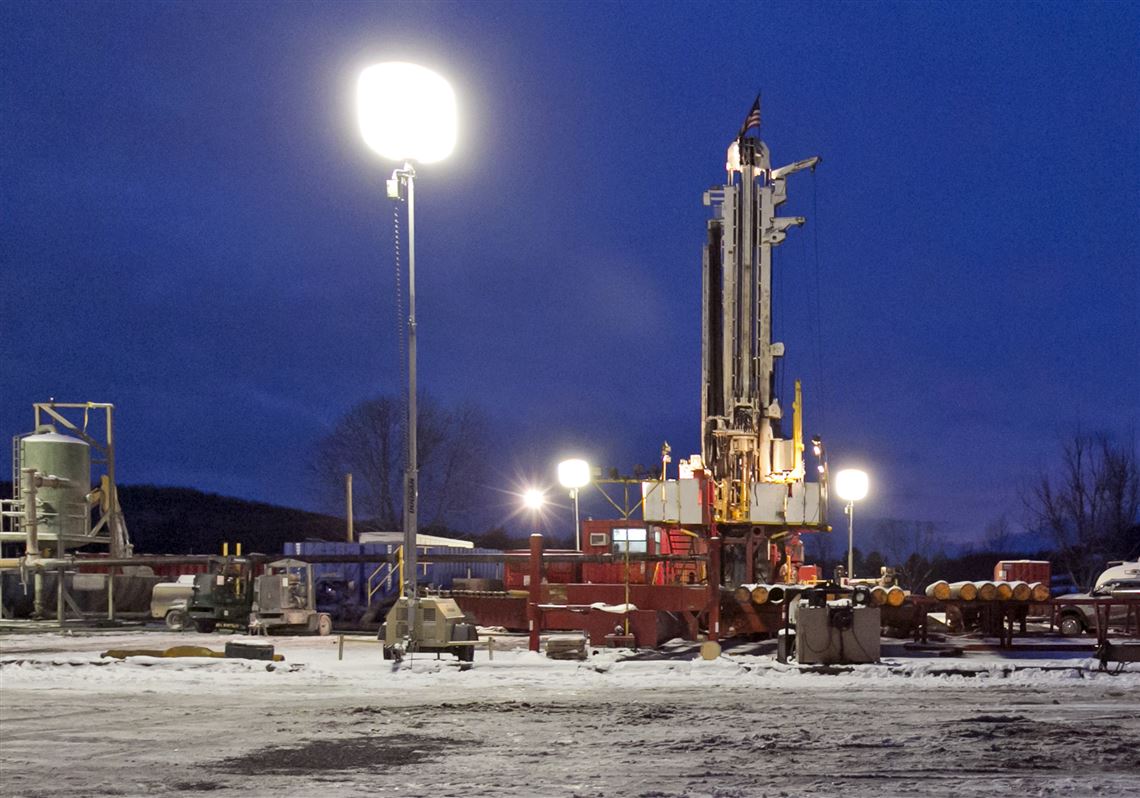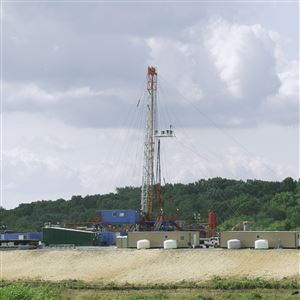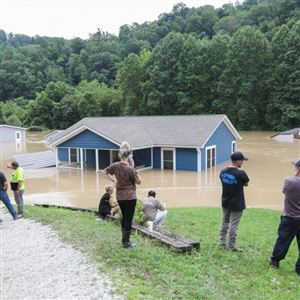Big gas has throttled Pennsylvania’s economy and that of the wider Ohio Valley for the last fifteen years. While gas executives like Energy Transfer’s Kelcy Warren and Chesapeake’s Aubrey McClendon managed to extract money from Pennsylvania pocketbooks and ship it back home to Texas and Oklahoma, our municipalities have gotten poorer and emptier.
As research from the Ohio River Valley Institute concluded in August, “Pennsylvania’s rural natural gas counties have lost jobs every year since 2012 and are struggling with a rate of population loss among the worst in the nation.”
Reversing such trends in these communities means standing up to the immense power and influence of the fossil fuel industry, with its deep pockets and cozy relationships with lawmakers in Harrisburg. That takes resources few communities possess on their own. Fortunately, a growing coalition of advocates and philanthropists recognize the need for a new energy economy in western Pennsylvania.
Bloomberg Philanthropies has been a key contributor in this effort. Its support is accelerating our transition to an economy driven by renewable energy that will provide family-sustaining jobs and homegrown clean energy that is affordable and insulated from global fossil fuel price shocks.
I run Clean Air Council, a Pennsylvania-based nonprofit with many staffers who live and work in southwestern Pennsylvania. We asked Bloomberg Philanthropies to help fund our work, and we are grateful for the new grant we received as part of the Beyond Petrochemicals campaign. We are already using these resources to help educate decision-makers throughout the region to understand that Pennsylvania’s future is not hitched to subsidizing new end-uses for dirty minerals like methane gas.
These resources have been a game-changer in our efforts to defend against the latest snake oil being peddled by the industry: a renaissance led by petrochemicals. Pennsylvanians don’t need corporate boondoggles like the Shell cracker plant in Beaver County. We need elected officials to stop wasting the public’s money propping up the fossil fuel industry.
The Shell plant alone received over $1.6 billion in tax breaks, the largest in state history. And what are the results in Beaver County? Since Shell broke ground on the plant, the county has actually lost people, lost jobs, and lost businesses. In other words, petrochemical industry development has failed Pennsylvania.
Perspectives like those shared by the Post-Gazette in its recent editorial (“Butt Out, Mr. Bloomberg”) fail to recognize that many Pennsylvania communities are struggling despite or because of the heavy fossil fuel industrialization of our countryside. Communities were sold a bill of goods about the jobs and economic revitalization that fracking would bring. We’re seeing the same playbook now with petrochemicals.
Let’s look at the facts. In 2009, the gas industry was delighted to cite a Penn State study that said “[n]atural gas production from the Pennsylvania Marcellus could rise to almost 4 billion cubic feet BCF per day by 2020” and generate “almost 175,000 jobs in 2020.”
In fact, Pennsylvania in 2020 produced much more gas — more than 19 billion cubic feet per day — while generating far fewer gas jobs — fewer than 24,000 in total. What’s more, the cavalier attitude of the fossil fuel industry as it has built infrastructure close to people’s homes, schools, nurseries, hospitals, and recreational areas has led to devastating public health harms and property destruction.
There is every reason to believe that an influx of petrochemical production will be just as ill-fated as the fracking boom. While petrochemical plants worsen the climate crisis and cause pollution on a global scale, the most harmful effects are felt by the surrounding communities.
Petrochemical plants create toxic byproducts that increase the risk of cancer, lung disease, and heart disease for nearby residents. Shell plant modeling suggests that its emissions will lead to tens of millions of dollars in annual health care costs for nearby counties.
Despite these clear health risks, Clean Air Council had to take Shell to court to secure needed pollution monitoring measures. As with fracking, the Shell plant’s economic benefits — including up to 20,000 projected direct and indirect jobs — have fallen well short of what was promised.
Pennsylvania’s economy is so much more than fossil fuels and petrochemicals, which make up a tiny share of the state’s economic activity. It’s our farms, universities, manufacturing, cutting-edge science, hospitals, service industries, and our booming renewable energy sector.
We must shift the focus — and the public funds — from an industry that has kept us in a rut. Clean Air Council is proud to be part of that transition. It is the legacy we need to leave to future generations, and Pennsylvania is fortunate that Bloomberg Philanthropies has the foresight to join others in investing in our future.
Joseph Otis Minott is executive director and chief counsel of Clean Air Council. His previous article was “In dealing with CO2, Pennsylvania can’t afford to do what the federal government does better.”
First Published: October 6, 2022, 4:00 a.m.

















